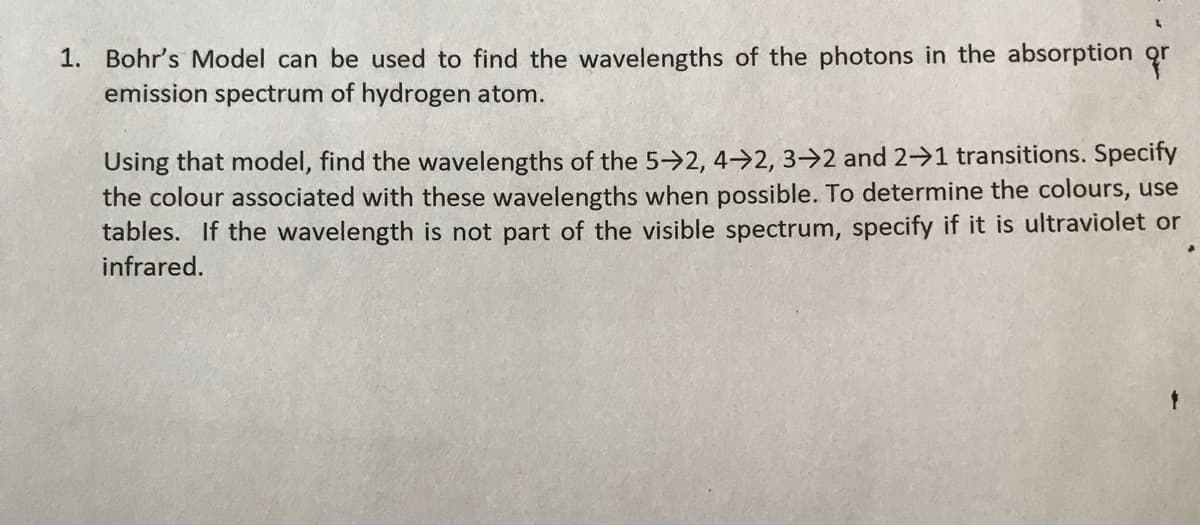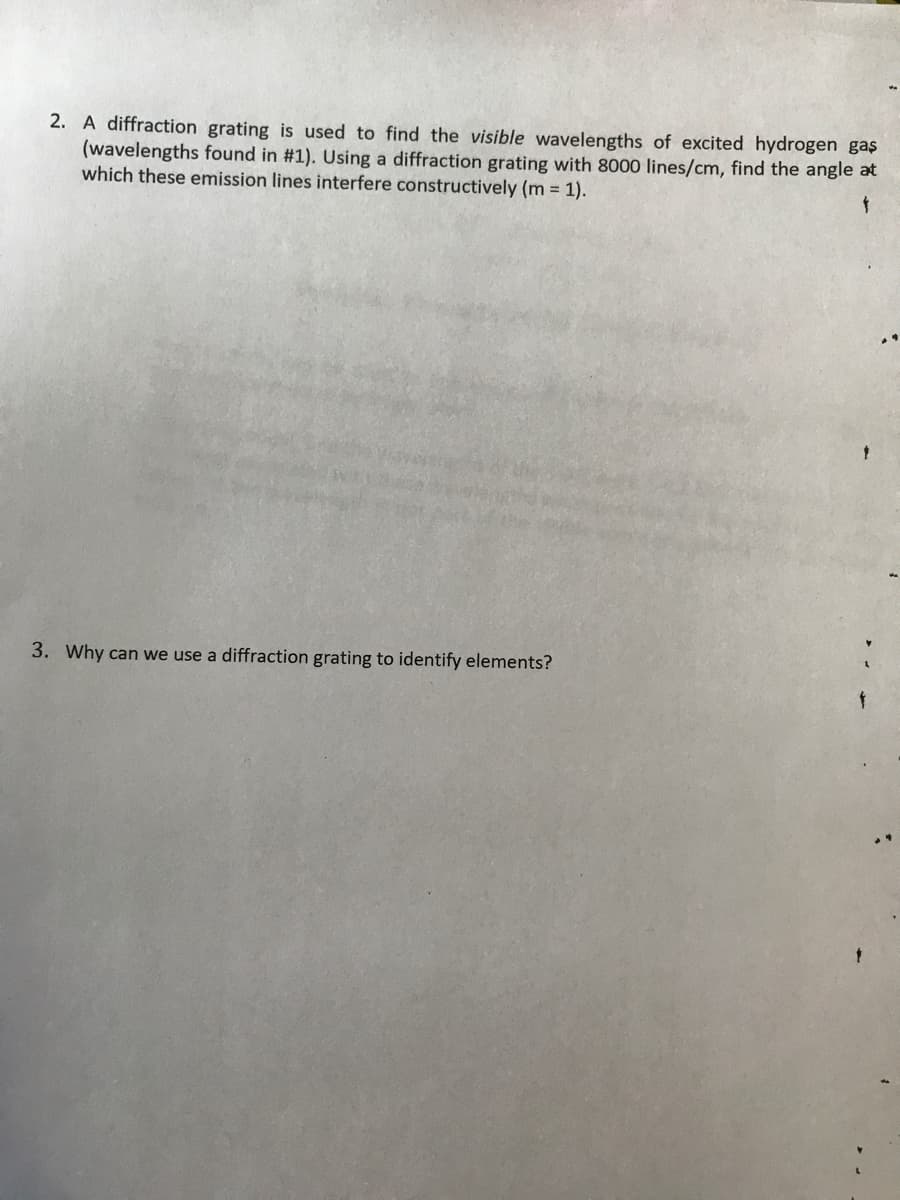1. Bohr's Model can be used to find the wavelengths of the photons in the absorption or emission spectrum of hydrogen atom. Using that model, find the wavelengths of the 5→2, 4-→2, 3-→2 and 2->1 transitions. Specify the colour associated with these wavelengths when possible. To determine the colours, use tables. If the wavelength is not part of the visible spectrum, specify if it is ultraviolet or infrared.
1. Bohr's Model can be used to find the wavelengths of the photons in the absorption or emission spectrum of hydrogen atom. Using that model, find the wavelengths of the 5→2, 4-→2, 3-→2 and 2->1 transitions. Specify the colour associated with these wavelengths when possible. To determine the colours, use tables. If the wavelength is not part of the visible spectrum, specify if it is ultraviolet or infrared.
College Physics
11th Edition
ISBN:9781305952300
Author:Raymond A. Serway, Chris Vuille
Publisher:Raymond A. Serway, Chris Vuille
Chapter28: Atomic Physics
Section: Chapter Questions
Problem 14P
Related questions
Question
answer the question as detailed as possible!

Transcribed Image Text:1. Bohr's Model can be used to find the wavelengths of the photons in the absorption or
emission spectrum of hydrogen atom.
Using that model, find the wavelengths of the 5-2, 4→2, 3→2 and 2->1 transitions. Specify
the colour associated with these wavelengths when possible. To determine the colours, use
tables. If the wavelength is not part of the visible spectrum, specify if it is ultraviolet or
infrared.

Transcribed Image Text:2. A diffraction grating is used to find the visible wavelengths of excited hydrogen gas
(wavelengths found in #1). Using a diffraction grating with 8000 lines/cm, find the angle at
which these emission lines interfere constructively (m = 1).
3. Why can we use a diffraction grating to identify elements?
Expert Solution
This question has been solved!
Explore an expertly crafted, step-by-step solution for a thorough understanding of key concepts.
Step by step
Solved in 3 steps with 3 images

Knowledge Booster
Learn more about
Need a deep-dive on the concept behind this application? Look no further. Learn more about this topic, physics and related others by exploring similar questions and additional content below.Recommended textbooks for you

College Physics
Physics
ISBN:
9781305952300
Author:
Raymond A. Serway, Chris Vuille
Publisher:
Cengage Learning


Glencoe Physics: Principles and Problems, Student…
Physics
ISBN:
9780078807213
Author:
Paul W. Zitzewitz
Publisher:
Glencoe/McGraw-Hill

College Physics
Physics
ISBN:
9781305952300
Author:
Raymond A. Serway, Chris Vuille
Publisher:
Cengage Learning


Glencoe Physics: Principles and Problems, Student…
Physics
ISBN:
9780078807213
Author:
Paul W. Zitzewitz
Publisher:
Glencoe/McGraw-Hill

University Physics Volume 3
Physics
ISBN:
9781938168185
Author:
William Moebs, Jeff Sanny
Publisher:
OpenStax

College Physics
Physics
ISBN:
9781938168000
Author:
Paul Peter Urone, Roger Hinrichs
Publisher:
OpenStax College

College Physics
Physics
ISBN:
9781285737027
Author:
Raymond A. Serway, Chris Vuille
Publisher:
Cengage Learning